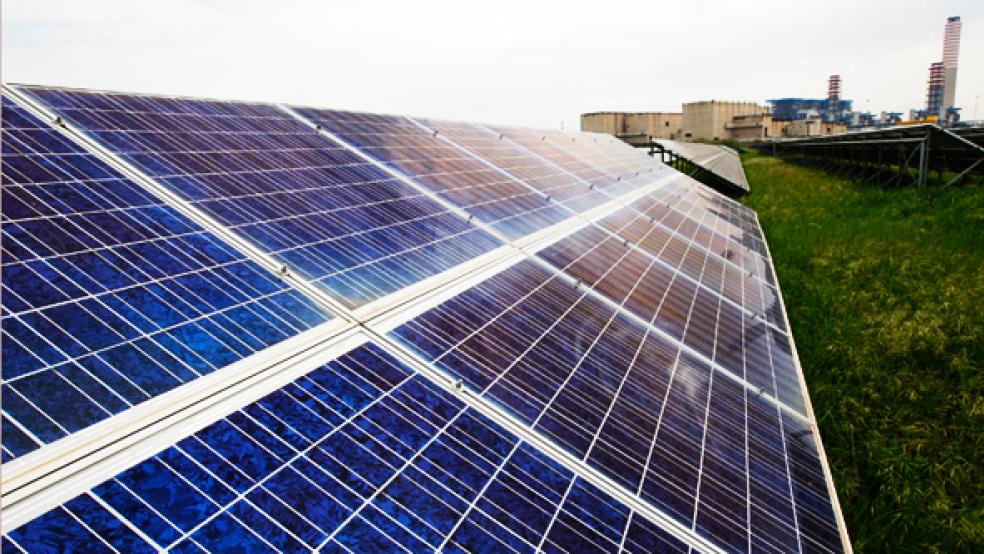Not since computer chip manufacturers complained about unfair competition from Japanese manufacturers in the 1980s has a cutting-edge, high technology industry run to the government with complaints about unfair trading practices by its overseas rivals. But in a closely watched trade case, U.S.-based solar manufacturers have claimed that illegally subsidized Chinese manufacturers are dumping their products in the U.S. at prices far below the manufacturing costs in order to put rivals out of business and seize a dominant position in the U.S. market.
RELATED: Tempers Flare in Solar Trade Case
A preliminary ruling in the case last month found the Chinese government did, in fact, violate World Trade Organization rules by offering unfair subsidies to its local producers. But the International Trade Commission, a unit of the Commerce Department, imposed only minor tariffs.
Now all eyes are on the dumping portion of the complaint, which will be decided sometime in the next month. The Fiscal Times recently sat down with Gordon Brinser, the president of SolarWorld Industries of America, the lead plaintiff in the case brought by seven U.S. companies. His company employs 1,000 workers in Oregon, making it one of the largest solar module manufacturers in the U.S.
The Fiscal Times (TFT): Are the Chinese companies dumping their products, or is it that prices are just coming down as the market rapidly expands because of economies of scale and rising productivity?
Gordon Brinser (GB): The cost of solar cells has come down about 10 percent every year for a decade as innovations moved into production. We’ve seen sustained increases in productivity every year. But what we’re seeing is a purposeful reduction in prices by the Chinese industry. We’ve seen a 50 percent drop in module prices, while the cost to consumers has only come down 20 percent.
TFT: Why are the Chinese so intent on coming here? Their market is much larger than ours.
GB: The market in the U.S. is growing rapidly. A lot of the demand is driven by incentives. Most states have renewal portfolio standards [where states require a set percentage of electricity come from renewable sources]. There’s still a 30 percent investment tax credit [which expires in 2016].
TFT: Don’t consumers here benefit from cheaper prices offered by Chinese companies? Solar installers are opposing your trade complaint. They say most of the 100,000 jobs in the U.S. industry are in marketing and installation.
GB: If the U.S. allows its industry to be dismantled piece by piece by the Chinese industry, where will prices here go? They’ll have to go up. That’s bad for consumers, it’s bad for the environment, and it’s bad for the economy. The irony is that the Chinese government gives its manufacturers massive subsidies that we don’t get. Then we turn around and give them a free and open market where they can take advantage of our demand side subsidies.
TFT: Does it really matter where the solar cells are manufactured?
GB: Manufacturers here in the U.S. have been driving down our costs year by year. In a few years, we’ll be cost competitive with other forms of electricity and already are in some markets. Competition in a free and fair global market drives down prices. But it needs to be done long term. The solar industry has huge potential. The technology is on the verge of huge breakthroughs. We’ve seen thinner substrates [the silicon base of most cells]; better ways of fabricating modules; and we’re seeing cells that last longer. And there’s still a lot of sunlight we don’t capture. Getting cells to be more efficient and minimizing losses through the distribution system will be the next big breakthroughs.
TFT: Why is your company based in Oregon?
GB: I was born and raised in the natural outdoors and played college football at Linfield College in McMinnville. There’s a pride in Oregonians that’s a natural fit for solar. We have a thousand manufacturing workers who are passionate about solar power and what it can do for this country.




